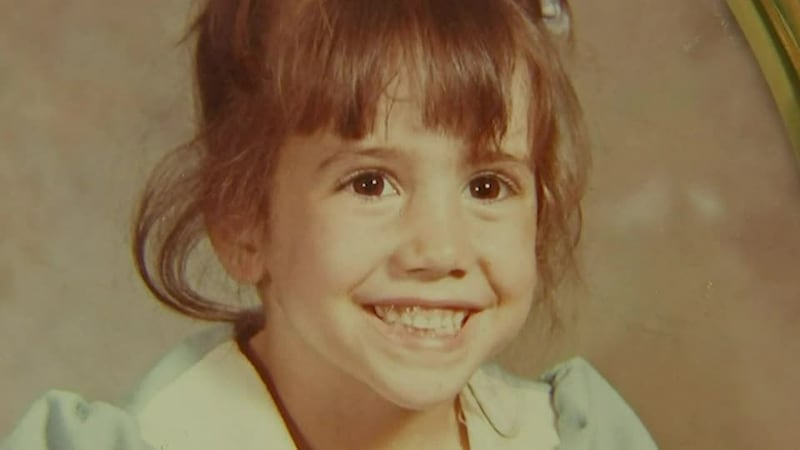PITTSBURGH — The special fund created by the Pittsburgh Catholic Diocese to compensate victims of clergy sex abuse closed down in October, but some victims say the fund fell far short of what they expected.
Target 11′s Rick Earle spoke to several victims who said they feel like they’ve become victims again, not at the hands of priest, but the diocese. They believe that some of the settlement offers were “a slap in the face.”
“Quite frankly the program that Pittsburgh ran, of all the programs, was the most poorly funded,” said Ben Andreozzi, an attorney who represents approximately 30 victims from the Pittsburgh Catholic Diocese.
Andreozzi said about half of the victims he represents accepted settlements from the diocese. The other half declined the offers.
“We’re not talking about them thumbing their nose at millions of dollars. We’re talking about situations where people who have been raped are offered less than $20,000. I’m not suggesting that $20,000 isn’t a lot of money, but for somebody who has extensive needs for therapy, they lost out on job opportunities, they lost out on their education, the needs far exceed that of what they were offered, " he said.
In the beginning, Andreozzi said the Pittsburgh offers were in line with programs across the country and the state. He estimates the average settlement was about $130,000 and the largest he saw was approximately $500,000.
Halfway through the program in Pittsburgh, he said something changed.
“The offers started entering into what I would say was almost an insulting range. You know, where if I was somebody working for the diocese, I would have considered discontinuing the program, rather than send out some of these low, low offers which really didn’t do those survivors any favors,” he said.
Andreozzi pointed to the case of two brothers abused by the same priest at a church in Carnegie, yet they received dramatically different settlements.
TRENDING NOW:
“One brother, the settlement offer was six times greater. Same abuse. But the one brother didn’t go through the program in the beginning,” he said.
Target 11 reached out to the Pittsburgh Catholic Diocese. A representative said the fund closed at the end of October and they are in the process of compiling information and plan to release a complete report soon that would answer questions about settlement discrepancies.
Target 11 discovered that more than 350 people filed claims with the Pittsburgh Catholic Diocese, and the diocese has said they expect to pay out tens of millions of dollars.
When announcing the new program in 2018, Bishop David Zubik said donations allocated for specific use would not be touched.
“Let me be clear no funds for this program will come from our campaign for the Church Alive from Catholic Charities, parishes, schools or any other funds designated for a specific use by donor,” Zubik said.
Similar compensation programs in other diocese, like Harrisburg, which paid 100 victims 12 million dollars, led to bankruptcy.
In Pittsburgh, a judge blocked the diocese from using a $9 million trust fund that was donated in the late 1800′s to run an orphanage that’s since shut down. The money has been used to fund youth programs in the diocese.
Pennsylvania Attorney General Josh Shapiro, who issued the scathing grand jury report on clergy sex abuse, opposed the move saying the founder, “would have never intended his charitable gift to be used for this purpose.”
Ryan O’Connor, who said he was abused by a priest in the Altoona-Johnstown Catholic Diocese from the time he was 8 to 11-years-old said he would not have accepted any money from the fund, but said he understands why some survivors opted to take it.
“There are survivors out there who don’t want to come forward, who don’t want to go through everything,” said O’Connor.
O’Connor was not offered a settlement because the Altoona-Johnstown Catholic Diocese did not participate in the fund.
Victims who didn’t accept the settlement offers are now waiting and hoping for favorable court rulings and or changes in state law that would ultimately allow them to file suit against the diocese.
O’Connor said for him it’s about more than money.
“It’s not about money. It’s about justice. It’s about getting into that court of law and sitting across from our abusers. That’s the bottom line for myself,” he said.
Victims who took settlement offers surrender their rights to sue.
Target 11 has learned there is a plan in the state legislature that calls for a constitutional amendment to establish a two-year window for victims to file lawsuits. That plan needs final approval from the legislature and then it would go to voters as a statewide referendum.
“We believe if they stay the course, that there’s a brighter day ahead and at some point in time, the people who were responsible for allowing this to happen will be held accountable and they will get the resources they need to get their lives back on track,” Andreozzi said.
Cox Media Group








